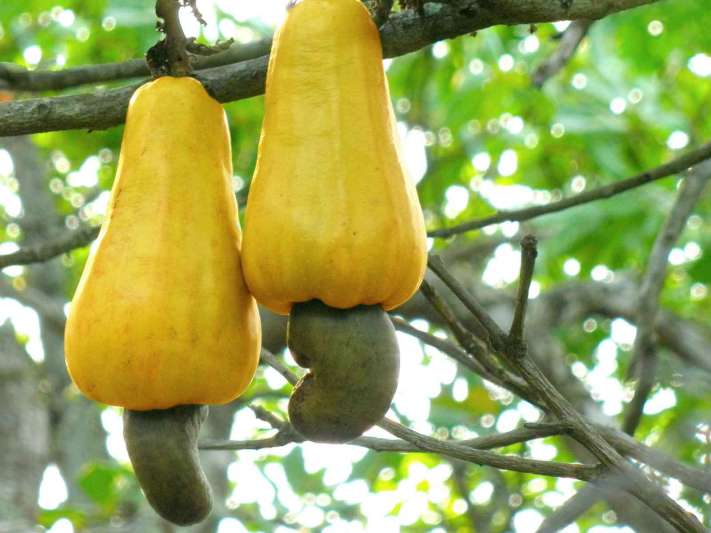
Cashew Plantations AP
Cashew plantations in north coastal AP are growing at such a pace that the once poor farmers’ fates have turned for the better. The areas that come under the cashew plantations are turning the farmers into the king of fruits.
The horticulture departments of Visakhapatnam, Vizianagaram and Srikakulam have revealed data regarding the extent of these plantations. Reportedly, the plantations are spread over 5 acres of land in the three districts with a yielding capacity of 15 lakh tonnes of kernels.
P Nookala Rao, a proprietor of two cashew processing units in Palasa told TOI, “The average yield of the region in terms of processed cashew would roughly amount to 1 lakh tonnes (after removing the kernel and peeling the skin) as 50% of the yield is either consumed or sold locally. Middlemen pay the farmers an average rate of Rs 125 per kilo for raw cashew with kernel. This cashew is further divided into four categories after being processed. Hence, this is one crop that provides good returns to the farmer as the procurement price is very high
.”With the procurement price being high this year, so KV Nair, a Vizag-based procurer reportedly stated that he has been trading in cashew for over 20 years. He started as a small middleman in the early 90s by touring Narsipatnam and Anakapalli areas. The cash cover back then was limited with most of the mango plantations being mono-plantations. So, they used to pay Rs 1000 for an 88 kilo bag 24 years ago. The price improved to Rs 3500 per bag in 2010. Now, thanks to the immense competition between procurers from Srikakulam which has 330 units, with 260 in Palasa alone and procurers from Kerla, the asking rate stands at more than triple to the benefit of farmers.
Dr R Subba Rao, a retired scientist who played a key role in promoting cashew hybrids of the Bapatla variety in north coastal AP in the early 90s, said. “The cashew research station at Bapatla has produced amazing hybrids that are highly suitable for the north coastal AP clime. They are all high yielding varieties which require little water and this has made all the difference. With both the yields and the demand increasing, the farmers have benefited from the market competition.“
This post was last modified on 27/04/2017 5:10 pm
Activists of Osmania University Joint Action Committee (JAC) stormed and attacked the house of Allu…
District Collector M N Harendra Prasad has said that all the officials concerned should work…
It's the end of the week which means no work pressure and ample time to…
Araku Valley and Vanjangi, both the places have their unique fanbases in Visakhapatnam! During winter,…
Vizag is a paradise for food lovers. Every corner of the city has something special…
Rainy days bring with them the perfect excuse to curl up with a cup of…
Leave a Comment